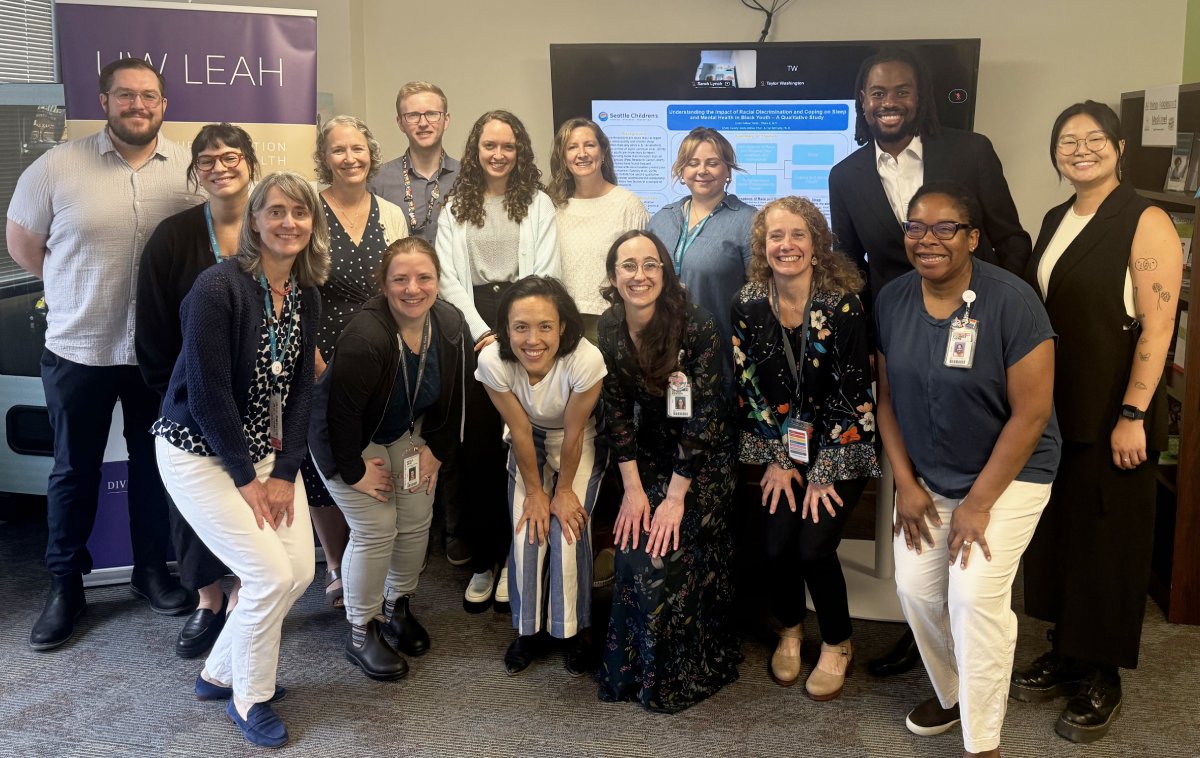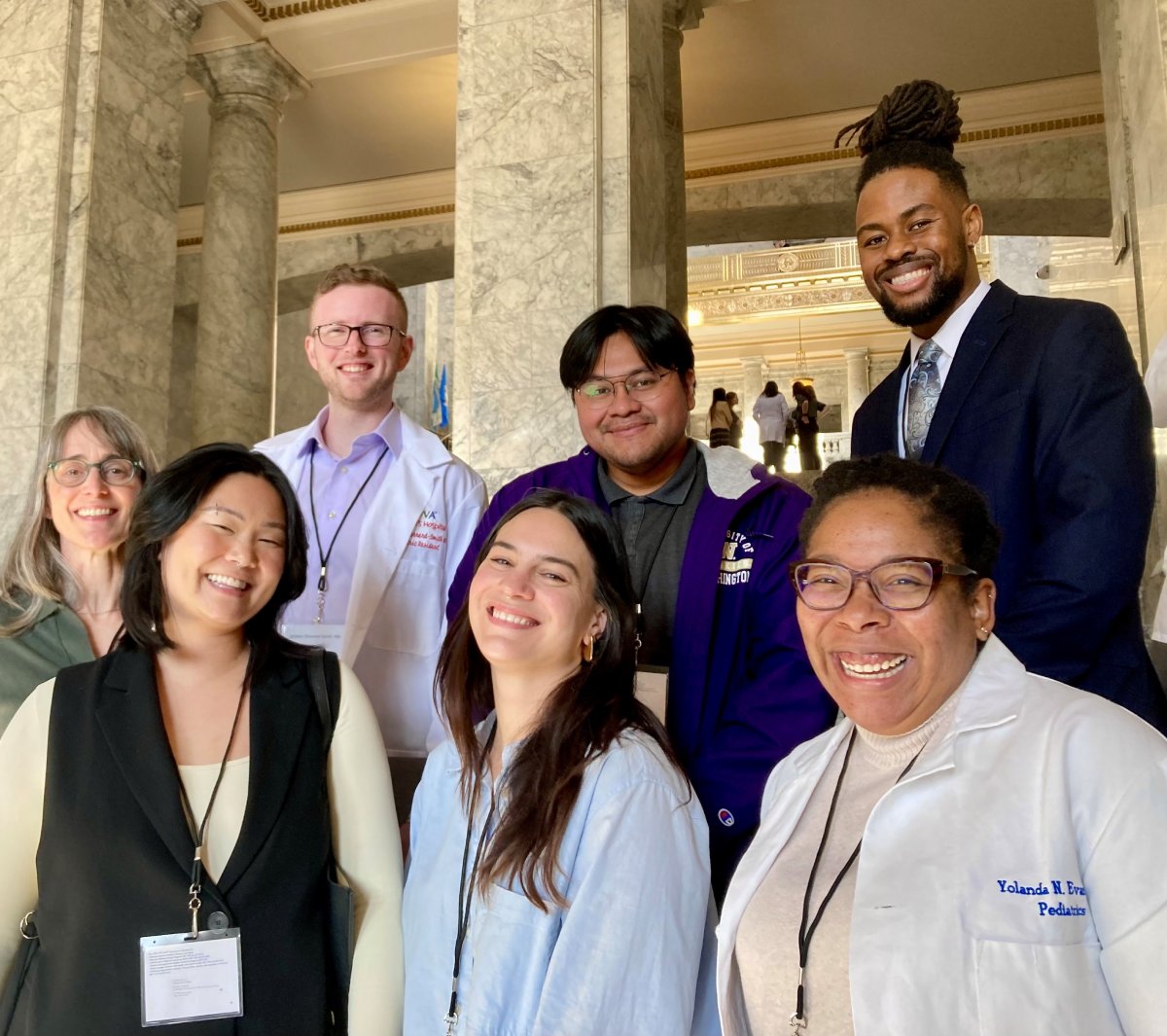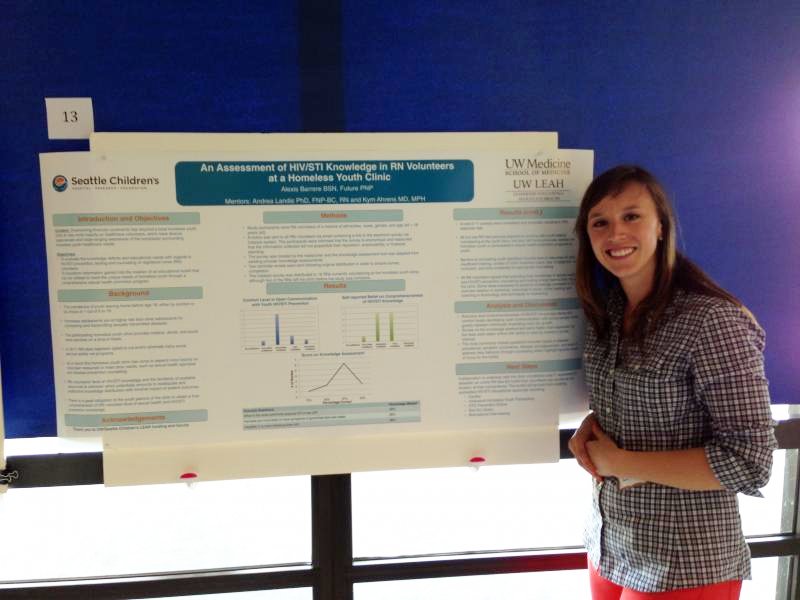About
UW LEAH is dedicated to training future leaders in adolescent health with the goal of improving health of all adolescents. UW LEAH fellows participate in mentored, hands-on, and didactic training in adolescent health, focusing on interdisciplinary practice, leadership skills, research, public health, advocacy and policy, cultural responsiveness, community engagement, and health services delivery for adolescents. UW LEAH uniquely prepares trainees to assume leadership roles in their respective fields.
Our curriculum highlights the life course perspective and the relationships between health, society, and the environment. We benefit from strong local, state, regional, and national partnerships that include families and youth, providers, state and local agencies, and professional organizations.
This program is one of nine interdisciplinary training programs funded by a Title V grant from the Maternal Child Health Bureau (MCHB) in the U.S. Department of Health and Human Services.
Who should Apply to be a Fellow?
UW LEAH long-term fellows are graduate students and mid-career health care professionals who seek to become leaders in adolescent health. Each year, we recruit and assemble a cohort of top candidates in each of the five core LEAH disciplines:
Medicine
Nursing
Nutrition
Psychology
Social Work
Opportunities are also available for members of other disciplines and community organizations who are interested in leadership training in adolescent health.
Applicant Requirements:
- Current enrollment in a relevant advanced graduate program (e.g. Masters degree or higher in nursing, social work, or nutrition), OR completion of one of:
- Ph.D. in Psychology and completion of an APA accredited internship
- Medical residency in an adolescent-related health field (e.g. pediatrics, family medicine)
- Graduate level training in nursing, social work or nutrition
- U.S. citizenship
Long-term Fellowship Details
- How long is the long-term trainee program?
Typically, the training is completed over the course of three academic quarters beginning in September of the academic year.
- What does the training involve? Can it be customized?
UW LEAH training experiences include: seminars, clinical rotations, and a mentored leadership project in the areas of research, advocacy, and program development or quality improvement.
The leadership training experience is individually tailored to the interests of the trainee. UW LEAH trainees complete their training onsite at Seattle Children's hospital and within near-by community-based programs.
- What type of leadership opportunities will I have?
Gaining leadership skills and experience is achieved in many ways. UW LEAH's hands-on leadership activities are designed to help trainees develop knowledge and skills in areas that include family-centered practice, research, public health policy, advocacy, and education. All UW LEAH trainees are required to participate in at least one of the following activities:
- UW LEAH committees, which inform the program's community efforts, clinical training, recruitment, program evaluation, and dissemination strategies
- Research
- Washington State Title V Program collaborative projects
- Adolescent Health Legislative Day (Olympia, WA)
UW LEAH trainees are encouraged to design independent leadership activities to meet their own unique interests. Independent leadership experiences are arranged in coordination with the trainee’s faculty mentor or other UW LEAH faculty, including opportunities to attend national meetings relevant to adolescent health.
- Are there required projects?
Yes, UW LEAH trainees are required to complete a leadership project under the guidance of their faculty mentor. Examples include:

- Projects that fulfill the trainee’s academic thesis or dissertation requirement;
- Pilot research study;
- Survey research for a needs study or to assess quality of service and/or client satisfaction;
- Product or resource for use in clinical service or training.
UW LEAH trainees present their leadership project poster during LEAH Presentation Day in June. Preparation of a manuscript for publication in a peer-reviewed journal is a final outcome for many leadership projects.
- What skills and leadership competencies will I gain?
Upon completion of the UW LEAH training program, trainees successfully achieve the following leadership competencies:
- Mastery of MCH Leadership Competencies and administrative skills to affect systems change, for adolescents and families.
- Knowledge and skill in all aspects of adolescent health, including: prevention and health promotion, physical & psychosocial development, treatment strategies, care coordination, evidence-based practice, medical home, and adolescent healthcare transition to adult care issues.
- Mastery of the interdisciplinary team skills (e.g., team building, shared leadership, mutual accountability) and communication skills (e.g. verbal, written, and conflict resolution).
- Knowledge of life course theory, the social environment (the family, community, and school) and other factors that influence health
- Skill in family-centered, community-based health care practices.
- Knowledge and skill to evaluate, apply, and conduct research in all aspects of adolescent health.
- Knowledge and skill applying Title V legislation and policies, and public health core functions to maternal and child health program and practice issues.
- Ability to utilize information technology (e.g. electronic communication media, information and data management, electronic medical records, and distance learning) to promote innovative practice models.
Long-Term Fellowship Application Deadlines
- Psychology: We are not accepting psychology trainee applicants for the 2026-2027 grant cycle. Please check back for the 2027-2028 application cycle, which opens December 2026.
- Social Work: March 1, 2026
- Nursing: May 1 , 2026
- Nutrition: June 1, 2026
- Medicine: Follows national ACGME, NRMP, ERAS deadlines
Medium Term Fellowship Options
In addition to the long-term fellow training program, UW LEAH offers select opportunities for medium-term training and dedicated research mentorship on a case-by-case basis. We also offer the opportunity to complete a Certificate of Advanced Competency for interested graduate-level trainees or practicing professionals. For further information about these training opportunities, contact UWLEAH@seattlechildrens.org.
Medium Term Fellowship Application Deadlines
- Heritage University: June 1, 2026
- Mid-Term Trainee: rolling admissions
Program Directors
Faculty
Collaborating Partners:
Contact Us!
Please contact uwleah@seattlechildrens.org with any questions.








